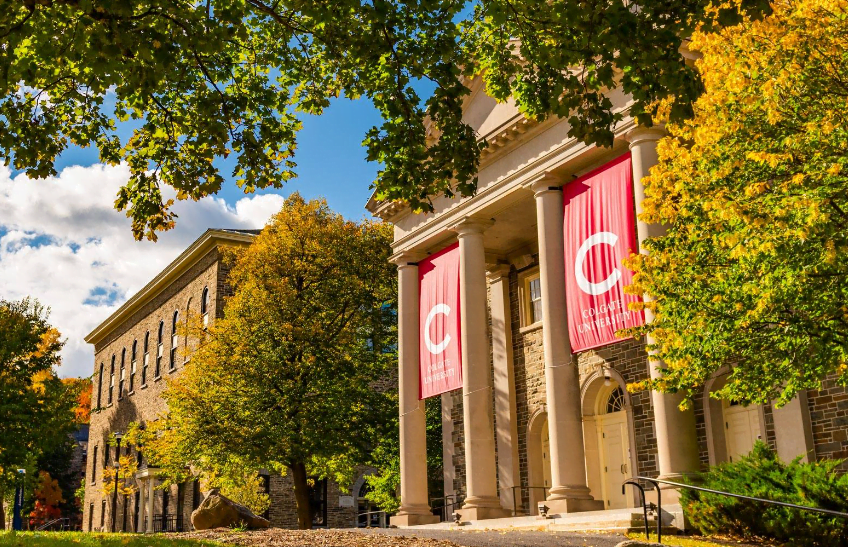Choosing a college is one of the most important decisions that students make, as it can shape their future careers and personal lives. With so many options available, it can be overwhelming to decide which college is the best fit for you. While many students may be drawn to large universities or small liberal arts colleges, medium-sized colleges can offer unique benefits that may not be found at other types of institutions. In this article, we will explore the benefits of attending a medium-sized college and highlight some of the best options available.
What is a Medium-Sized College?
A medium-sized college typically has a student body of 5,000 to 15,000 students. This size allows for a more intimate learning environment compared to large universities, while still providing ample resources and opportunities for students. At a medium-sized college, students can often find a balance between personalized attention from professors and a diverse range of academic programs and extracurricular activities.
Benefits of Attending a Medium-Sized College
Personalized Attention from Professors
One of the main advantages of attending a medium-sized college is the personalized attention that students receive from professors. With smaller class sizes, professors are often able to engage with students on a deeper level, providing more individualized feedback and guidance. This can be especially beneficial for students who may need extra support in certain areas or who are looking for more one-on-one interaction with their instructors.
Diverse Range of Academic Programs
While small liberal arts colleges may have a limited range of academic programs, and large universities may have overwhelming options, medium-sized colleges often strike a balance. Students can choose from a diverse range of majors and minors, from STEM fields to humanities to social sciences. Additionally, many medium-sized colleges offer unique interdisciplinary programs that allow students to explore multiple fields of study.
Active Student Life
Medium-sized colleges often have active student life, with numerous extracurricular activities and organizations available for students to participate in. Whether it is sports teams, cultural clubs, or academic societies, there are many opportunities for students to get involved on campus and develop their leadership skills.
Accessible Resources
At a medium-sized college, students have access to a wide range of resources, including academic advising, career services, and health and wellness support. With a smaller student body than large universities, resources are often more accessible and personalized. This can be especially important for students who may need additional support or guidance in navigating college life.
Strong Community
Medium-sized colleges often have a strong sense of community, as students have the opportunity to get to know their classmates and professors on a more personal level. This can lead to a supportive and tight-knit environment, where students can feel more connected to their college and have a sense of belonging.
Best Medium-Sized Colleges in the US

- Colgate University: Located in Hamilton, New York, Colgate University has a student body of around 3,000 students. It is known for its strong academic programs in the humanities, social sciences, and natural sciences.
- Lafayette College: Located in Easton, Pennsylvania, Lafayette College has a student body of around 2,500 students. It offers a diverse range of majors, including engineering, social sciences, and humanities.
- Trinity University: Located in San Antonio, Texas, Trinity University has a student body of around 2,400 students. It is known for its strong programs in the natural sciences, as well as its focus on interdisciplinary studies.
- Elon University: Located in Elon, North Carolina, Elon University has a student body of around 6,700 students. It offers a wide range of majors, including business, communications, and health sciences.
In addition to providing a close-knit community and personalized attention, medium-sized colleges also offer a variety of academic programs and extracurricular activities. These colleges typically have a diverse range of majors and minors available, allowing students to explore different fields of study and tailor their education to their individual interests and career goals.
Moreover, medium-sized colleges often have a variety of student organizations and clubs available, ranging from academic clubs to sports teams to service organizations. These opportunities for involvement allow students to develop leadership skills, make connections, and pursue their passions outside of the classroom.
When it comes to career outcomes, medium-sized colleges also offer significant benefits. These colleges typically have strong career centers and alumni networks, which can provide students with valuable resources and connections for internships, job opportunities, and career advice. Additionally, the smaller class sizes and personalized attention at medium-sized colleges can allow for more individualized career counseling and support.
Furthermore, attending a medium-sized college can offer a unique and well-rounded college experience. Students can benefit from a close-knit community while still having access to a variety of academic and extracurricular opportunities. This can allow for a more holistic approach to education and personal growth, with opportunities to develop both intellectually and socially.
Of course, it is important to note that not all medium-sized colleges are created equal. It is important to do thorough research and consider factors such as academic programs, student life, location, and cost when selecting a college. It may also be helpful to visit campus and speak with current students and faculty members to get a better sense of the college culture and academic environment.
In conclusion, medium-sized colleges offer a unique and advantageous option for students seeking a well-rounded college experience. These colleges provide a close-knit community, personalized attention, diverse academic programs, and ample opportunities for extracurricular involvement and career development. As students consider their college options, they should not overlook the benefits of attending a medium-sized college.

